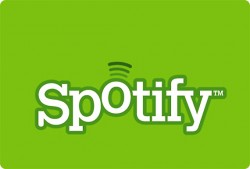Weekly News Roundup (21 July 2013)
I spent most of this last week watching Dexter on Netflix. I do worry though that binge watching a show about a serial killer might have a bigger impact on my psyche than your typical binge watching choice. Binge watching is great for killing a bit of time now and then, but if it cuts too much into your life schedule, then it can become harmful.
But it’s okay, I’m far too lazy to ever become a serial killer. Or a serial anything.
Onto the news.
 The randomness of DMCA takedown submissions to Google has once again reared its ugly head, with HBO asking a page containing a download for the popular open-source VLC media player to be delisted from Google’s results.
The randomness of DMCA takedown submissions to Google has once again reared its ugly head, with HBO asking a page containing a download for the popular open-source VLC media player to be delisted from Google’s results.
With more than 14 million links being removed from Google’s results just in the last month alone, and with little or no consequence for submitting incorrect takedown requests, mistakes are going to happen. It’s likely that HBO outsourced the collation of these links to a third party, which then probably used an automated keyword based algorithm to locate suspicious links. If that third party failed to do some basic verification of the automatically gathered links, then this is what happens.
While Google probably has their own method to detect and ignore incorrect takedown requests, but mistakes still do happen. If it’s a popular domain or page, then the site owner might file a counter claim which will be successful and will get the URL reinstated. But on a page like this one, where it’s a legal download on a torrent site, it’s unlikely the site’s owner, or the people who make VLC, will make the effort to file a counter claim, and so once the mistake happens, it’s permanent. Just how many permanent mistakes have happened via Google’s DMCA process, nobody knows.
As for HBO, at least they didn’t try to remove their own webpages like they did last time.
Opening up another front in the war against piracy, Google (and Microsoft, Yahoo and other major web advertisers) this week announced new plans to stop the flow of money to websites suspected of providing infringing content. The new plan was brokered by the Internet Advertising Bureau with help from the White House, and will allow rightsholders to alert ad networks of potentially infringing sites and get them booted off the network.
With the MPAA harping on about getting money out of piracy, you’d think they would be the first to offer support to this new initiative. But surprisingly, or perhaps unsurprisingly, the MPAA wasn’t impressed at all, calling the new initiative too narrow, and saying that too much of the anti-piracy burden is being placed on rightsholders.
The “everyone else should do the work, not us” stance isn’t a new one from the film industry, but having just months ago praised industry-led efforts like this one, the MPAA’s dissatisfaction is a bit hard to understand. If I didn’t know better, and I don’t, it would almost as if the MPAA preferred the likes of Google and Microsoft to do nothing. This way, the tech industry can continue to be the scapegoats in all of this, the straw men in their bid to get continue the government subsidization of this billion dollar industry.
Whatever the reason is for the entertainment industry’s single-minded pursuit of a technologically-led solution, the technology sector is actually coming up with real and working entertainment-led solutions to the same problem. A newly published report from Norway shows that music piracy rates are now only a sixth of what they were in 2008, and it’s largely thanks to legal alternatives such as Spotify.
The report found that illegal music downloads topped 1.2 billion in 2008 in Norway, but is now down to only 210 million (as of 2012). Further proving that Spotify and platforms like it are solving the piracy problem, the report found that 47% of those surveyed used Spotify, with an amazing half of these people also choosing to pay for the premium version of the music streaming service. Just goes to show that people are willing to pay for music, as long as you give them a product that’s worth paying for.
Film and TV piracy in Norway also declined, but not by as much as music piracy. With Netflix only available in Norway from October 2012, we’ll probably see bigger declines when the 2013 figures are out.
But not everyone is happy with Spotify though. Thom Yorke and Nigel Godrich of Radiohead last week pulled their music from Spotify, criticizing the music streaming platform of being “bad for new music”. The musicians criticized Spotify’s royalty payment system, which they say ensures new musicians will never make it, while Spotify “shareholders will shortly being rolling in it”.
Spotify responded to the criticism by saying that $500 million in royalty payments have already been paid out to rightsholders, and that this figure is likely to reach $1 billion by the end of 2013, and that much of this money “is being invested in nurturing new talent and producing great new music”.
Note that payments to rightsholders does not always equal payment to artists. Music labels talk about artist rights, but the reality is that only a small slice of revenue actually goes to the artists. In the age of record stores and CDs, where labels did all the promotional work, this may have made sense. But in the age of self-publishing, perhaps it’s time for artists to take control of their own destinies, and get a bigger slice of the pie as a result.
![]()
The June NPD stats are out looking at US video game sales in that month, and Microsoft’s Xbox 360 was again the top selling home-based console with 140,000 unit sales. This is the 30th month in a row that the 360 has been the best selling console.
Sony was their usual quiet self, despite the critically acclaimed The Last of Us being the top selling title of the month, the third highest selling game in June since 1995.
Nintendo did put out a PR statement, but it was exclusively focused on the 3DS, which did sell 225,000 units. No mention of the Wii U at all, which doesn’t bode well for the much-maligned console.
It’s definitely the calm before the storm at the moment, what with only a few more months left until the release of the PS4 and Xbox One. I just hope that with a new generation, the NPD and the gaming companies involved will be more generous when it comes to releasing sales figures. Wishful thinking, perhaps.
All right, that’s it for the week. Not too long, not too short. Just right. See you next week.


